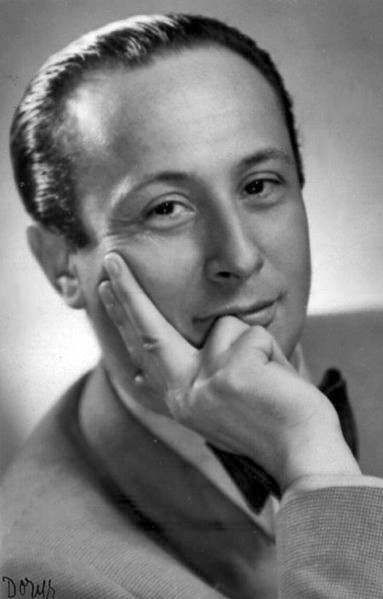Szpilman, Władysław 1911 - 2000

Author: PWM Edition
Last updated:September 30, 2022
Author: PWM Edition
Władysław Szpilman
(1911 Sosnowiec [Poland] – 2000 Warsaw [Poland])
Władysław Szpilman was a Jewish-Polish composer, pianist, and arranger. In 1926, he enrolled at the Warsaw Music High School [now Fryderyk Chopin University of Music], where he studied piano with Józef Śmidowicz and music theory and counterpoint with Michał Biernacki. In 1931, he received a scholarship to enter the Berlin Academy of Arts, where he furthered his studies under Artur Schnabel and Leonid Kreutzer. During his time in Berlin, he composed some of his earliest works, including the suite The Life of the Machine and orchestral pieces.
In 1933, as National Socialist tendencies intensified and Hitler seized power, Szpilman returned to Poland and began taking piano lessons from Aleksander Michałowski. He also formed a duo with the renowned violinist Bronisław Gimpel, and their performances were highly acclaimed. In 1935, he was employed as a pianist for Polish Radio, where he worked until the outbreak of World War II. It was during this period that he developed an interest in popular music.
On September 23, 1939, Władysław Szpilman was performing a Chopin piece at the radio station when German bombing destroyed Warsaw's power plant, halting the broadcast. Polish Radio's broadcasts ceased for the next six years. In 1940, the Szpilman family was forced into the Warsaw Ghetto. Szpilman's income from performing in cafes and concert halls supported the family. Many works, including the song Casanova based on a poem by Władysław Szlengel, were written during this period. In 1942, his family was deported to the Treblinka extermination camp, but by a stroke of fate, he was spared the same destiny.
Within the ghetto, Szpilman worked as a construction laborer, but after about a year, he managed to escape. Thanks to the help of friends, including the Lewicki and Bogucki families, he was able to hide and survive until the outbreak of the Warsaw Uprising. However, when he eventually ran out of acquaintances to rely on, he hid in the ruins of a destroyed house. His hiding place was discovered by German Captain Wilm Hosenfeld. Yet, the captain began to provide Szpilman with food and clothing, allowing him to survive there until the end of the war.
In 1945, Szpilman rejoined Polish Radio, first as deputy head of the music department, and later as head of the light music department. In 1946, together with Jerzy Waldorff, he published his memoir Death of a City, detailing his wartime experiences. In addition to his work at the radio, he performed in concerts as a solo pianist and orchestra conductor, and co-organized festivals such as the Sopot International Song Festival and various other concerts. The "Warsaw Quintet," which he formed with violinist Gimpel, became immensely popular.
Szpilman composed approximately 500 popular songs, as well as film scores, music for radio dramas, and orchestral works. He passed away in Warsaw on July 6, 2000.
In 2002, film director Roman Polanski produced and released The Pianist, a film based on Władysław Szpilman's biography.
Major Works
- Violin Concerto (1931)
- Toccata for Piano (1931)
- Suite for Piano, The Life of the Machine (1931)
- Waltz in Old Style (1937–68) for string orchestra
- Music for the film Wrzos (Heather) directed by Juliusz Gardan (1938)
- Music for the film Doktór Murek (Doctor Murek) directed by Juliusz Gardan (1939)
- Piano Concerto, Concertino (1940)
- Mazurka for Piano (1942)
- Variations on a Waltz from Ludomir Różycki's opera Casanova for solo voice, two pianos, orchestra, and jazz orchestra (1945)
- Paraphrase on an Original Theme (1947) for orchestra
- Negro Song (1949) for orchestra
- Two Waltzes (1951) for orchestra
- Three Miniatures for Piano (1952)
- Music for the film Zawsze pierwsi (Always First) directed by Joanna Rojewska (1953)
- Music for the film Zadzwońcie do mojej żony (Call My Wife) directed by Jarosław Mach (1958)
- Music for the fairy tale Little Red Riding Hood (1958)
- Little Overture (1968) for orchestra
- Ballet Music for the comedy Aunt Karol (1968)
- Ballet Scene (1968) for orchestra
- Small Pieces for Piano (1972)
- Music for the film Piłkarski poker (Soccer Poker) directed by Janusz Zaorski (1988)
